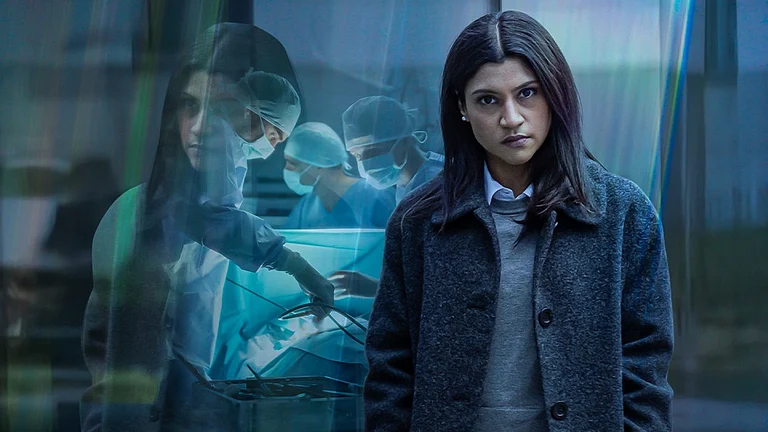
Change walks quietly
What almost no one anticipated had just happened. Mahinda Rajapaksa, the man who seemed invincible, ruling Sri Lanka with an iron fist for the past decade, had conceded defeat without a fight. Sri Lanka had a new president without any protests, curfews and violence. Yet, on the day the election results were announced, almost no one was out to celebrate. “Why are the streets so deserted?” I asked our local contact. “This is not India. We are not that expressive or excitable, so don’t expect to find that TV moment here,” he said. Some people we met around our hotel said, “Yes, we are very happy”, but without the slightest change in tone, with complete nonchalance. Nothing appeared to faze them, perhaps the result of having endured a brutal civil war for over 30 years. “For years, I would drive my child to school every day, not knowing when a bomb would go off, if we’d live another day,” our contact explained. I suppose that living with that constant fear would make you far more resilient than most people. Also less inclined to emotional displays.
But, as I came to realise towards the end of our week-long trip, the merry-making mostly happened at drawing room parties behind closed doors. A well-known restaurateur explained, “Colombo people could come up with any reason to rejoice. There were curfew parties, election parties, victory parties. We very much have an ‘island culture’ here. We take every day as it comes.”
The provoking line
If you’d Googled Sri Lanka before Pope Francis’s visit there, you’d have turned up a host of articles (especially in the international media) on how the country is afflicted by religious tension. After all, ‘Pope Francis Arrives Amid Religious Tension’, makes for a great headline. But, as is often the case, the real story can be far different. For our part, we spoke to people and leaders of all communities—the majority Buddhists, Muslims, Hindus, Evangelical Christians and Catholics. All of them expressed the same sentiment—that there is no “culture of religious intolerance and oppression” in Sri Lanka. While there have been religious altercations, the most deadly in 2014, when three people were killed in Buddhist-Muslim riots, they were mostly isolated and political motivated. Every country and religion has its extremists. But as Sri Lanka’s archbishop told us, “It’s important to go beyond the headlines and determine why a country in which people from various faiths have intermingled and lived harmoniously for centuries are now sometimes at odds.” The leader of the Bodu Bala Sena, the Buddhist group often blamed for attacks on Christians and Muslims, explained it thus: “When Christian evangelicals come to our communities and break our Buddha statues, spit on them, we naturally react.” If there is a faint echo there, it’s of Pope Francis’s statement on provoking or making fun of what is held holy by many: “If anyone says a swear word against my mother, then a punch awaits him.” He’d made this statement on his aircraft while flying out of Sri Lanka.
A China Orange
Much has been said about China surrounding India with a “string of pearls”. Perhaps nowhere is this concept more apparent than on Colombo’s ocean front. Dominating the skyline is a bright orange container terminal. It’s a $500 million affair, built by the Chinese. Construction is fast under way to extend the beach area several kilometres into the sea, diminishing the distance between India and Sri Lanka’s coast. Recent reports of Chinese submarines docking here have caused concern in India. Whether the Chinese influence will wane under the new government is still unclear. But the overarching sentiment here is that Mahinda Rajapaksa is exactly the kind of president Sri Lanka needed in the past decade—to end the war, bring peace and development. Now, Maithripala Siresena is exactly the leader Sri Lankans want, to carve out a new future, a new identity for themselves.
Crustacean cut
We chanced upon Ministry of Crab in the beautifully renovated 400-year-old Dutch Hospital complex and made every effort to keep going back. This swanky restaurant is a joint venture by cricketers Mahela Jayawardene, Kumar Sangakkara and renowned chef Dharshan Munidase. It has become a culinary institution for all the right reasons. The crabs are fresh, meaty and worth every painstaking minute you spend getting morsels out of the shell. The service is impeccable and the ambience a perfect juxtaposition of cosmopolitan Colombo and laid-back island country. It’s a great place to experience how much has changed since the war ended in 2009—and where the country is headed.
Move aslant...
The bibs given out at the restaurant Ministry of Crab say, ‘Keep Calm and Crab On’. That’s exactly what we did.
Sumnima Udas is a CNN International correspondent based in New Delhi; E-mail your diarist: sumnima.udas [AT] CNN [DOT] com
























